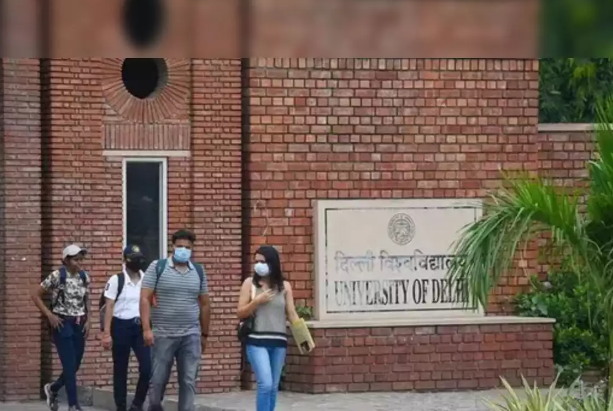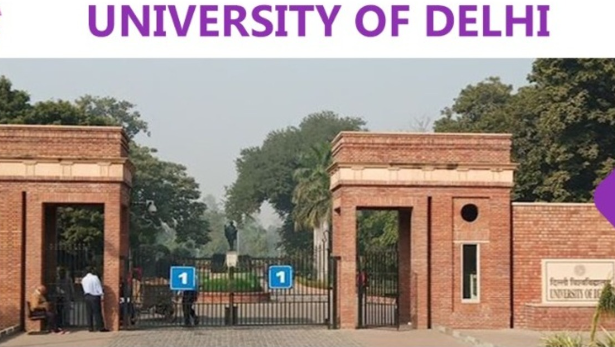Postgraduate Admissions in Delhi University :- Delhi University (DU), one of India’s premier educational institutions, has successfully completed 85% of its postgraduate admissions within three rounds this year. This achievement marks a significant milestone in the university’s efforts to streamline and expedite the admission process. The efficient execution of admissions reflects DU’s commitment to providing quality education while addressing the growing demand for higher education among students across the country. This article delves into the intricacies of the admission process, the factors contributing to its success, and the broader implications for the higher education landscape in India.
Overview of Delhi University’s Admission Process
Delhi University, established in 1922, has a rich history of academic excellence and has been a preferred choice for students seeking higher education in various disciplines. The university offers a wide range of postgraduate programs across its numerous faculties, including Arts, Science, Commerce, and Social Sciences. Each year, thousands of students compete for a limited number of seats, making the admission process highly competitive and rigorous.
Postgraduate Admissions in Delhi University
The postgraduate admission process at DU typically involves multiple rounds of seat allocation, allowing students to secure admissions based on their merit and preferences. This year, the university adopted a three-round admission process, which has proven to be highly effective in filling the majority of seats. The rounds are structured as follows:
- First Round:
- In the first round, candidates are shortlisted based on their performance in entrance exams or merit lists, depending on the program. The shortlisted candidates are then invited to complete the admission formalities, including document verification and fee payment.
- Second Round:
- The second round accommodates candidates who were not allotted seats in the first round or those who wish to upgrade their choice of programs. This round provides another opportunity for students to secure admission in their desired courses.
- Third Round:
- The third and final round aims to fill any remaining vacant seats. It offers a last chance for eligible candidates to gain admission. This round is crucial for ensuring that the maximum number of seats are filled before the academic session begins.

- The third and final round aims to fill any remaining vacant seats. It offers a last chance for eligible candidates to gain admission. This round is crucial for ensuring that the maximum number of seats are filled before the academic session begins.
Factors Contributing to the Success of the Three-Round System
Several factors have contributed to the successful completion of 85% of postgraduate admissions within three rounds at DU. These include:
- Efficient Use of Technology:
- The integration of advanced technology in the admission process has significantly improved efficiency. Online application portals, digital document verification, and automated seat allocation systems have streamlined the entire process, reducing the time and effort required for admissions.
- Transparent and Merit-Based Selection:
- DU’s commitment to a transparent and merit-based selection process has instilled confidence among students and parents. The use of entrance exams and merit lists ensures that admissions are based on academic performance, thereby maintaining the university’s high standards of education.
- Effective Communication:
- Clear and timely communication with applicants has played a pivotal role in the smooth execution of the admission process. Regular updates through the university’s website, emails, and SMS notifications have kept candidates informed about important dates, procedures, and any changes in the process.
- Streamlined Administrative Procedures:
- The university’s administrative staff have worked diligently to streamline procedures such as document verification and fee payment. The adoption of online platforms for these tasks has minimized delays and made the process more accessible to students from different regions.
Challenges Faced and Overcome
Despite the overall success, the admission process was not without its challenges. Some of the key issues encountered and addressed include:
- Technical Glitches:
- The high volume of applications and online traffic occasionally led to technical glitches in the admission portal. The university’s IT team worked round the clock to resolve these issues promptly, ensuring minimal disruption to the process.
- Verification Bottlenecks:
- Document verification is a critical step in the admission process. Delays in verifying documents submitted by a large number of candidates posed a challenge. To overcome this, additional staff were deployed, and the verification process was made more efficient through digital tools.
- Regional Disparities:
- Candidates from remote areas faced difficulties in accessing online resources and completing admission formalities. The university addressed this by setting up help centers and providing support through phone and email to assist students in navigating the process.
Impact on Students and the Academic Community
Postgraduate Admissions in Delhi University :- The successful completion of 85% of postgraduate admissions within three rounds has had a positive impact on both students and the academic community at DU. Some of the notable effects include:
- Reduced Anxiety Among Students:
- The expedited admission process has significantly reduced the anxiety and uncertainty typically associated with college admissions. Students have been able to secure their seats and make necessary arrangements for their studies well in advance.
- Timely Commencement of Academic Sessions:
- With the majority of seats filled, the university is better positioned to commence the academic session on time. This ensures that students do not lose valuable instructional time and can begin their studies as scheduled.
- Optimized Resource Allocation:
- The efficient admission process has allowed the university to better allocate its resources, including faculty, infrastructure, and administrative support. This optimization contributes to an enhanced learning experience for students.
- Strengthened University Reputation:
- DU’s ability to handle the admission process effectively has reinforced its reputation as a leading institution of higher learning. This success is likely to attract more talented students in the future, further elevating the university’s academic standing.
Broader Implications for Higher Education in India
Postgraduate Admissions in Delhi University :- The successful implementation of the three-round admission process at DU has broader implications for the higher education sector in India. It serves as a model for other universities and educational institutions facing similar challenges. Key takeaways include:
- Postgraduate Admissions in Delhi University Adoption of Technology:
- The use of technology in admissions can greatly enhance efficiency and transparency. Other institutions can learn from DU’s experience and invest in digital tools to streamline their admission processes.
- Emphasis on Merit and Transparency:
- A merit-based and transparent admission process builds trust and credibility. Ensuring that admissions are based on academic performance can help maintain high educational standards across institutions.
- Support for Remote and Underserved Students:
- Providing adequate support to students from remote and underserved areas is essential for equitable access to education. Establishing help centers and offering remote assistance can bridge the gap and ensure inclusivity.
- Collaborative Efforts:
- Collaboration between university administration, faculty, and IT teams is crucial for the smooth execution of the admission process. Effective coordination and communication among these stakeholders can lead to successful outcomes.
Future Directions and Recommendations
Postgraduate Admissions in Delhi University :- Looking ahead, there are several areas where DU can further improve its admission process and serve as a benchmark for other institutions. Recommendations include:
- Continuous Improvement of Technology:
- Regular updates and enhancements to the admission portal and related technologies can prevent technical issues and improve user experience. Investing in robust IT infrastructure will be crucial.
- Enhanced Student Support Services:
- Expanding student support services, including helplines, chatbots, and online tutorials, can assist applicants in navigating the admission process more effectively.
- Postgraduate Admissions in Delhi University Feedback Mechanisms:
- Implementing feedback mechanisms to gather insights from applicants can help identify areas for improvement. Regular surveys and feedback forms can provide valuable data to refine the admission process.
- Inclusive Policies:
- Developing policies that specifically address the needs of marginalized and underrepresented groups can ensure a more inclusive admission process. Scholarships, reserved seats, and targeted outreach programs can support these efforts.
- Strengthening Partnerships:
- Building partnerships with schools, coaching centers, and educational NGOs can enhance the university’s outreach and support network, helping more students prepare for and access higher education opportunities.
Postgraduate Admissions in Delhi University Conclusion
Postgraduate Admissions in Delhi University:- The completion of 85% of postgraduate admissions within three rounds at Delhi University is a testament to the institution’s commitment to efficiency, transparency, and excellence. This achievement not only benefits the students and the academic community but also sets a precedent for other universities in India. By leveraging technology, emphasizing merit, and providing robust support, DU has demonstrated that a streamlined admission process is attainable. As the university continues to innovate and improve, it will undoubtedly continue to attract and nurture the brightest minds, contributing to the advancement of higher education in India. ALSO READ:- Blinken Meets Wang, Flags China’s Actions Surrounding Taiwan 2024





